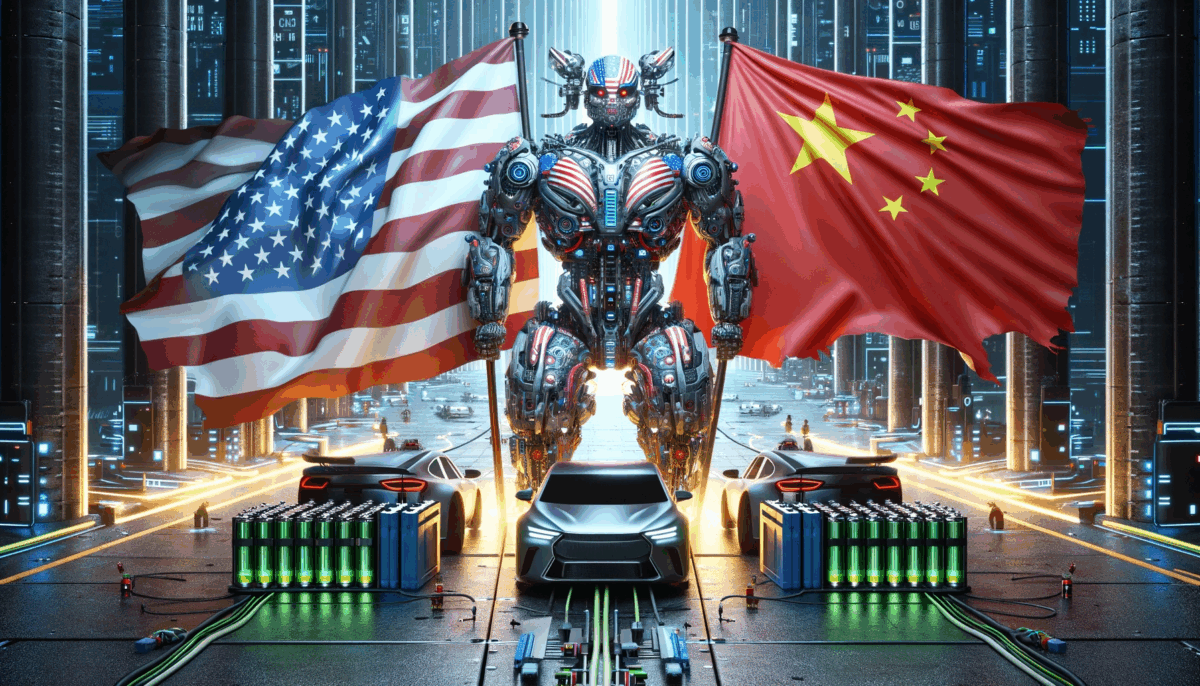With China’s growing technological development, semiconductors and electric vehicle (EV) batteries have become a focal point in U.S. efforts to hinder the Asian country’s technological advancement. Now Washington has set its sights on another area of technology in which China is making great progress: batteries for electric vehicles.
New Regulations Limit Tax Credits for EVs Containing Chinese Materials
At the beginning of this month, the US Treasury and Energy Departments proposed new rules that would limit tax credits for the acquisition of electric vehicles if the batteries contain materials sourced from China and other countries considered ‘adversarial’ by the United States. According to the climate law signed by President Joe Biden last year, consumers are entitled to subsidies of up to $7,500 for purchasing electric vehicles produced in the United States and primarily made with national-origin materials.
In response, the Chinese Ministry of Commerce criticized the measure last week, claiming that the new rules ‘discriminate against Chinese companies and violate the rules of the World Trade Organization (WTO).’ According to the Ministry, excluding Chinese manufacturers from US fiscal benefits is ‘a typical non-market-oriented policy and practice.’
The Objective of the New Regulations: Reducing Dependency on Chinese Supply Chains
The new regulations aim to reduce the United States’ reliance on Chinese supply chains amid an era of decoupling, which could hinder Biden’s efforts to promote the sales of electric vehicles, integral to his plan to cut greenhouse gas emissions by 50% by 2030.
Furthermore, the United States’ goal of limiting China’s dominance in a rapidly growing sector stimulated by the transition to electric vehicles is at risk. According to data from SNE Research, CATL and BYD, two of the largest Chinese battery manufacturers, accounted for about 53% of global battery usage for electric vehicles in the first ten months of this year.
As of the third quarter of this year, China was the world’s largest market for electric vehicles, with a 58% share, followed by the United States and Germany, according to the research firm Counterpoint.
South Korean Giants as an Alternative to Chinese Batteries
South Korean giants like LG, Samsung, and SK On offer competitive alternatives to economical and advanced Chinese batteries and are likely to benefit from the tensions between the United States and China. However, South Korean companies are also feeling the strain of new geopolitical complications.
Despite this, SK On has been chosen by Ford and Hyundai for the construction of battery factories in the United States. SK Group’s chairman, Chey Tae-won, recently criticized the United States for keeping battery costs high. Now constrained to seek non-Chinese materials, the South Korean division finds itself forced to look elsewhere. China owns a large part of the global supply chain for batteries for electric vehicles, from the extraction of rare minerals to the production of cells.
Chinese Companies Seeking to Maintain Their Cost Advantage
To maintain their cost advantage, Chinese companies producing batteries are looking to establish factories in the United States that allow their clients to benefit from fiscal credits for electric vehicles. Industry giants such as Gotion, BYD, and CATL have strategically planned production in the United States, even if their path is not free of obstacles. Ford, for example, has temporarily suspended plans for a $3.5 billion electric vehicle battery factory in collaboration with CATL in Michigan, while US politicians scrutinize the agreement with the Chinese company.

